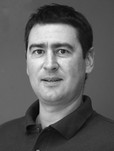Underage prospects’ selection algorithm in futsal
Фотографии:
ˑ:
PhD, Associate Professor M.V. Eremin3
PhD, Associate Professor L.M. Grzhebina1
PhD, Associate Professor A.A. Mushakov2
1Russian State University of Physical Education, Sports, Youth and Tourism (SCOLIPE), Moscow
2Moscow Secondary Special School of Olympic Reserve No. 1 (Technical School), Moscow
3Russian State Social University, Moscow
Objective of the study was to provide theoretical grounds for the underage prospects’ selection algorithm in futsal. Sampled for the algorithm testing experiment were the underage qualifies (n=50) to the futsal sport groups of Moscow Secondary Special Olympic Reserve School #1. First the children were qualified for the experiment; and second they were tested by the following specific tests: (1) All-round physical fitness tests including the anthropometrics (body length and mass); 60m sprint; standing long jump; standing high jump; prone push-ups; staffed ball throw; triangular run; race; rollover; 20m sprint; and Cooper tests; (2) Special physical fitness tests: left/right leg shot on goal; 35m dribbling; 3x10m shuttle run; 30s head/ leg juggling; slalom; passing accuracy; ball throw-in; defense footwork; and long shot tests.
The test data were processed by a mathematical statistics toolkit to find the most informative data arrays for the mission and goals of the study versus the actual physical fitness of the sample. The study data and analyses showed benefits of the underage prospects’ selection algorithm for futsal and made it possible to offer informative sets of criteria and tests of the all-round and special physical fitness.
Keywords: selection, forecasts, underage prospects’ tests in futsal.
References
- Abramishvili G.A., Karpov V.Yu., Skorosov K.K., Eremin M.V. Sovremennye tekhnologii differentsirovannogo fizicheskogo vospitaniya uchashchikhsya mladshego shkolnogo vozrasta [Modern technology of differentiated physical education of primary pupils]. Fizicheskaya kultura: vospitanie, obrazovanie, trenirovka.2015. no. 6. pp. 24–27.
- Grzhebina L.M., Frolova S.S. Model prakticheskogo primeneniya innovatsionnykh teoreticheskikh osnov fizicheskogo vospitaniya shkolnikov v usloviyakh chastnogo uchrezhdeniya obshcheobrazovatelnoy organizatsii [Model of practical use of innovative theoretical foundations of physical education of schoolchildren in private institution of general education organization]. Nauchno-pedagogicheskie shkoly v sfere fizicheskoy kultury i sporta [Scientific pedagogical schools in the field of physical education and sports]. Proc. Intern. res.-pract. congr. devoted to the 100th anniv. SCOLIPE. 2018. pp. 195–199.
- Mushakov A.A., Neverkovich S.D. Usloviya i komponenty refleksii v uchebnoy deyatelnosti [Conditions and components of reflection in learning activities] Teoriya i praktika fiz. kultury. 2008. no. 8. pp. 31–33.
- Proskurin M.A., Eremin M.V. Osobennosti metodiki otbora yunykh futbolistov na etape nachalnoy podgotovki [Peculiarities of selection of junior footballers at initial training stage]. Fizicheskaya kultura i sport v inklyuzivnom obrazovanii detey i uchashcheysya molodezhi [Physical education and sports in inclusive education of children and young people]. Proc. nat. student res.-pract. conf.. RSSU, PED. 2016. pp. 157– 161.




 Журнал "THEORY AND PRACTICE
Журнал "THEORY AND PRACTICE